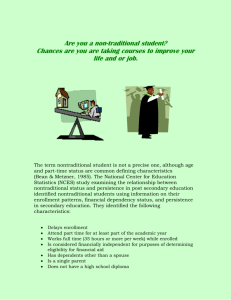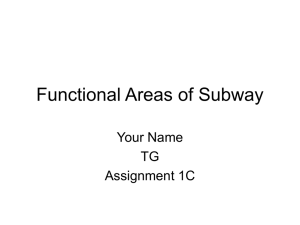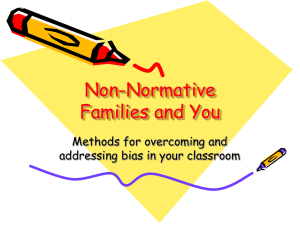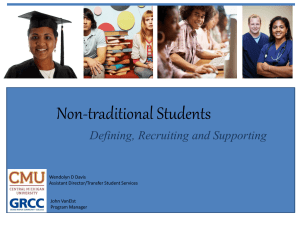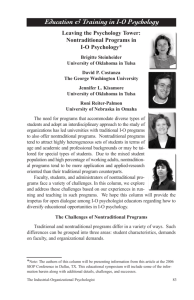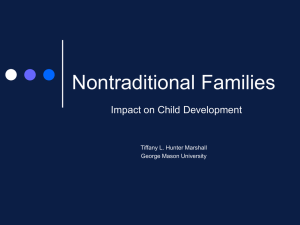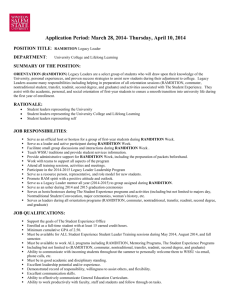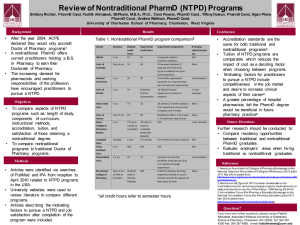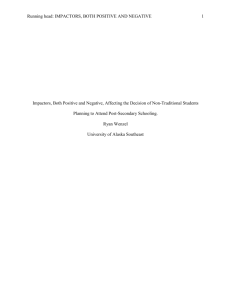Mary Hutchens [PhD Candidate, Higher Ed. Leadership
advertisement
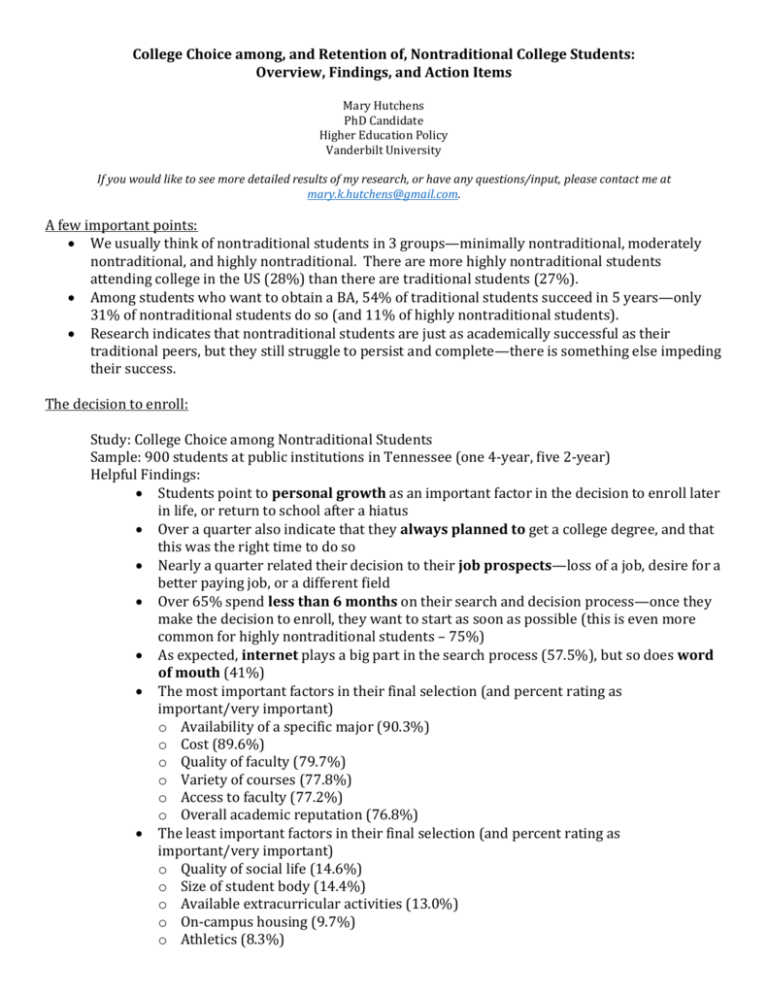
College Choice among, and Retention of, Nontraditional College Students: Overview, Findings, and Action Items Mary Hutchens PhD Candidate Higher Education Policy Vanderbilt University If you would like to see more detailed results of my research, or have any questions/input, please contact me at mary.k.hutchens@gmail.com. A few important points: We usually think of nontraditional students in 3 groups—minimally nontraditional, moderately nontraditional, and highly nontraditional. There are more highly nontraditional students attending college in the US (28%) than there are traditional students (27%). Among students who want to obtain a BA, 54% of traditional students succeed in 5 years—only 31% of nontraditional students do so (and 11% of highly nontraditional students). Research indicates that nontraditional students are just as academically successful as their traditional peers, but they still struggle to persist and complete—there is something else impeding their success. The decision to enroll: Study: College Choice among Nontraditional Students Sample: 900 students at public institutions in Tennessee (one 4-year, five 2-year) Helpful Findings: Students point to personal growth as an important factor in the decision to enroll later in life, or return to school after a hiatus Over a quarter also indicate that they always planned to get a college degree, and that this was the right time to do so Nearly a quarter related their decision to their job prospects—loss of a job, desire for a better paying job, or a different field Over 65% spend less than 6 months on their search and decision process—once they make the decision to enroll, they want to start as soon as possible (this is even more common for highly nontraditional students – 75%) As expected, internet plays a big part in the search process (57.5%), but so does word of mouth (41%) The most important factors in their final selection (and percent rating as important/very important) o Availability of a specific major (90.3%) o Cost (89.6%) o Quality of faculty (79.7%) o Variety of courses (77.8%) o Access to faculty (77.2%) o Overall academic reputation (76.8%) The least important factors in their final selection (and percent rating as important/very important) o Quality of social life (14.6%) o Size of student body (14.4%) o Available extracurricular activities (13.0%) o On-campus housing (9.7%) o Athletics (8.3%) The decision to stay: Study: Persistence among Nontraditional Students at Commuter Colleges Sample: 1,128 nontraditional students enrolled in five public 4-year commuter institutions Helpful findings (action items in bold): Outcome of Interest Student Persistence Subsequent Institutional Commitment Academic and Intellectual Development Commitment of the Institution to Student Welfare Institutional Integrity Support from Significant Others *Possible, but challenging, action item Significant Predictors Grades in high school Subsequent institutional commitment Parental education Grades in high school Affiliation need Motivation Support from significant others Institutional integrity Academic and intellectual development Gender Commitment of the institution to student welfare Institutional integrity Academic advising Faculty interest in students Teaching skills: organization and preparation, instructional clarity Faculty use of active learning Participation in a learning community Academic advising Faculty interest in students Good faculty teaching Teaching skill: organization and preparation Prompt feedback Provision of student work space Parking convenient to classrooms Convenient class times Provision of student services Straightforward registration process Academic advising Faculty interest in students Teaching skills: organization and preparation, instructional clarity Convenient class times Provision of student services Eating facilities open at times convenient for commuting students Straightforward registration process Gender Hours worked off-campus Convenient class times Reliable transportation to/from campus* Family welcomed on campus Faculty interest in students
